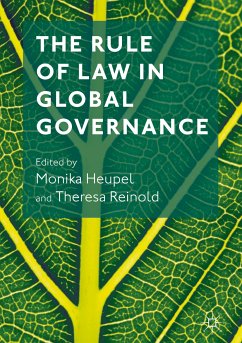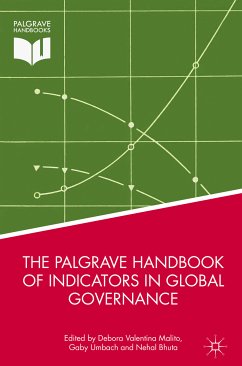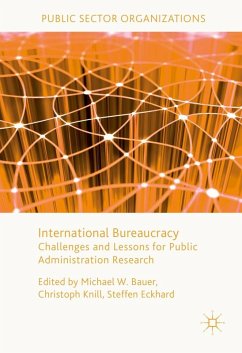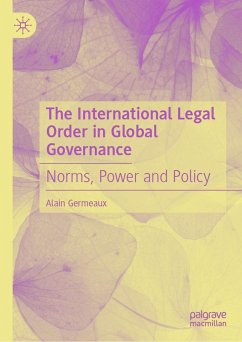
The Rule of Law in Global Governance (eBook, PDF)
Versandkostenfrei!
Sofort per Download lieferbar
72,95 €
inkl. MwSt.
Weitere Ausgaben:

PAYBACK Punkte
36 °P sammeln!
This book explores whether the co-existence of (partially) overlapping and sometimes competing layers of authority, which characterizes today's global order, undermines or rather strengthens efforts to promote the rule of law on a global scale. Heupel and Reinold argue that whether multi-level governance and global legal pluralism have beneficial or detrimental effects on the international rule of law depends on specific scope conditions. Among these are the mobilization of powerful states and courts, as well as the fit between soft law and hard law arrangements. The volume comprises seven cas...
This book explores whether the co-existence of (partially) overlapping and sometimes competing layers of authority, which characterizes today's global order, undermines or rather strengthens efforts to promote the rule of law on a global scale. Heupel and Reinold argue that whether multi-level governance and global legal pluralism have beneficial or detrimental effects on the international rule of law depends on specific scope conditions. Among these are the mobilization of powerful states and courts, as well as the fit between soft law and hard law arrangements. The volume comprises seven case studies written by International Relations and International Law scholars. Bridging the gap between political science and legal scholarship, the volume enables an interdisciplinary perspective on the emergence of an international rule of law. It also provides much needed empirical research on the implications of multi-level governance and global legal pluralism for the rule of law beyond the nation state.
Dieser Download kann aus rechtlichen Gründen nur mit Rechnungsadresse in A, B, BG, CY, CZ, D, DK, EW, E, FIN, F, GR, HR, H, IRL, I, LT, L, LR, M, NL, PL, P, R, S, SLO, SK ausgeliefert werden.












